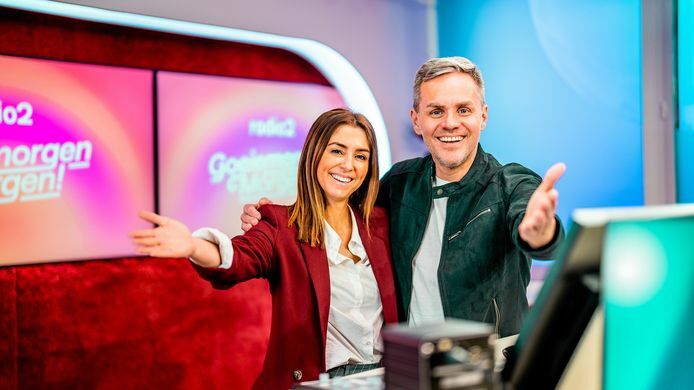|
 In one year, Radio 2's market share has fallen to less than 25 percent, a drop of four percentage points. For decades, the public broadcaster's channel was a rock, the epitome of a strong, popular and consistent brand, a brand of trust. But a recent rebranding has apparently alienated many tens of thousands of listeners from their favorite station. In one year, Radio 2's market share has fallen to less than 25 percent, a drop of four percentage points. For decades, the public broadcaster's channel was a rock, the epitome of a strong, popular and consistent brand, a brand of trust. But a recent rebranding has apparently alienated many tens of thousands of listeners from their favorite station.
A year ago, the arguments of VRT's management sounded familiar: radio 2 had to evolve with the times, a new generation of listeners had to be tapped, and so the market leader had to reposition itself, read above all: rejuvenate. Popular programmes were overhauled, trusted presenters were thanked for services rendered, and to top it all off, regional coverage was also scaled back. A year later, it appears that the renewed radio 2 has failed to attract new listeners and old listeners switched en masse to competitor Joe.
What would the late Jan Callebaut have thought of this, I wondered over the past few days. The market researcher was the spiritual father of the public broadcaster's brand strategy in the 1990s. On the basis of in-depth research into the underbelly of the Flemish and under the impulse of the management at the time, the dusty "BRT" became "a house of brands" in a few years. First on radio, later on television, VRT has succeeded in repelling competition from commercial broadcasting and claiming market leadership for both radio and television.
And of course, just like people, brands have to evolve with the times, they have to adapt to new needs and customs (especially since the rise of social media). But my own research into the success of brands (and organizations) over a longer period of time shows that brands must above all strive for a new balance between adapting and at the same time staying true to themselves, to their DNA, their values and their culture. This is a fragile balance and naturally gives rise to tensions and conflicts. But practice shows that those who change course too abruptly risk alienating their customers, in this case listeners.
And that's especially true for market leaders. The troubles of radio 2 remind me of the failed rebranding of Coca Cola in the mid-1980s. Under pressure from the competition (read: Pepsi) and a new generation of consumers, "New Coke" was launched, a renewed brand, with a new formula, a new packaging. Only the management had counted outside the value: the customers. A wave of protest rose among the public, they did not like the new coke and sales figures plummeted. Some even saw this as a perfect alibi to immediately switch to the even newer Pepsi. Under so much pressure, the Atlanta management had no choice but to reverse its steps, and return to the old familiar formula of "Classic" Coca Cola.
The management of the public broadcaster has dismissed the criticism of the repositioning of radio 2 from the beginning, and dismissed it as outdated conservatism, of people who were not open to change. The critics were proved right a year later. It is a warning from many energetic, innovation-driven marketing managers, and their directors: the brand is owned by its customers, in the case of radio 2, by the listeners. They decide every morning which radio brand they get up with, who they spend the day with, and for some even who they go to sleep with. The listener is always right. But unlike Coca Cola so many years ago, VRT's management appears unwilling to reverse its steps. Perhaps the market share will first have to plummet even further, especially the need for adjustments is felt.
Do they listen to radio 2 on the Reyerslaan?
|